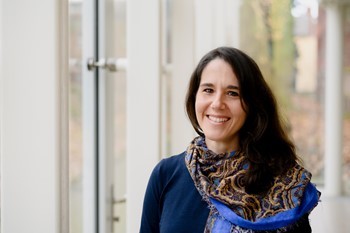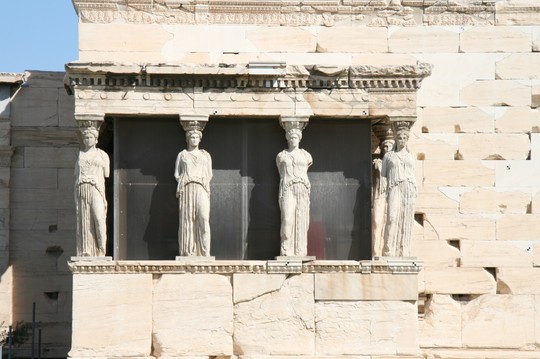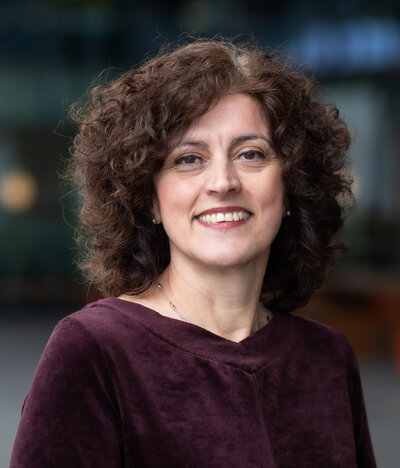WorkLab 2025

Our 2025 Programme for Practitioners includes webinars and our annual in person workshop.
Online Webinar: Why 1 + 2 = Elephant. June 27th 2025, 11.00 CET
In Person Workshop: The modern workplace: how to make it work for people. 13th-15th November, Athens
June 27th 2025, 11.00 CET
Online Webinar: Why 1 + 2 = Elephant: Polarization, Perception, and the Absence of Shared Reality at Work
To register click here

Speaker: dr. Maja Graso, University of Groningen
Why do people working in the same organization interpret the same event or policy so differently? Why does the same issue spark protest in some and an eye-roll in others? And why have so many ordinary practices become sites of polarization?
This seminar explores the growing sense that today’s workplaces are not just divided by opinion, but by divergent judgments of what is fair, harmful, or good. It focuses especially on diversity, politicization, and the unintended consequences of well-meaning inclusion efforts - without offering easy answers or moral prescriptions.
Rather than a "how-to" session, this is a space to explore the deeper tensions that divide teams and institutions. From clashes over values to competing claims of exclusion, we ask why misunderstandings are intensifying, how interventions can backfire, and what it might take to move forward - imperfectly, but together.
Who should attend: Consultants, Managers, HR professionals, educators, and others navigating the front lines of inclusion, conflict, and workplace cohesion.
dr. Maja Graso

Maja investigates the factors that shape how people perceive visible and invisible harms in their social environments. Whereas visible threats - such as a fire threatening a community - tend to generate shared urgency and collective action, invisible harms often produce disagreement and division. Their ambiguity invites competing interpretations, making them more difficult to address in a coordinated and lasting way. Her research focuses on how people perceive harms they cannot directly observe and how they seek to resolve them. When individuals or groups disagree on what constitutes harm, whose interpretation should guide social norms, and how should organizations respond? Which interventions meant to address harm provide only superficial or temporary relief, while exacerbating deeper conflicts or undermining long-term peace?
Before joining the University of Groningen, Maja spent six years at the University of Otago in New Zealand and five years at Zayed University in the United Arab Emirates, where she gained firsthand experience of Arab hospitality. Originally from Croatia, she has also lived in the Netherlands Antilles and studied and worked in the United States.
To register click here
13th-15th November, Athens
The modern workplace: how to make it work for people

‘Since the pandemic changes are evident in the way people work. Hybrid working has become more commonplace. Many employees, but not all, value this but it has implications for employees and managers. Employees’ self-regulating capacity is challenged as they are required to regulate themselves, their working place and time. Managers need to adapt their management style for effective performance management, have a more active focus on team building and managing relationships and be careful not to lose focus on employee well-being. On top of that, employees and managers are challenged by the introduction of AI and new technologies which puts economic pressure on companies, and a pressure to constantly adapt to workers challenging their wellbeing and effective functioning. This year’s workshop, led by Professor Evangelia Demerouti of Eindhoven University of Technology will examine these trends, present the latest research findings and demonstrate approaches that can be used in the workplace to enhance both effective ways of working and worker well-being.
For registration details click here.

Evangelia Demerouti
Evangelia Demerouti is a Full Professor at Eindhoven University of Technology (TU/e). Her research focuses on the processes enabling performance, including the effects of work characteristics, individual job strategies (including job crafting and decision-making), occupational wellbeing, and work-life balance.
Evangelia Demerouti studied psychology at the University of Crete (Greece) and obtained her PhD in Work and Organizational Psychology (cum laude, 1999) from the Carl von Ossietzky Universität Oldenburg (Germany). Having worked as a post-doc researcher at Erasmus University Rotterdam and Radboud University Nijmegen, Demerouti was assistant professor and associate professor at Utrecht University between 2002 and 2009. since 2015 she is Distinguished Visiting Professor at the University of Johannesburg, South Africa.
She has published over 200 national and international papers and book chapters, and is associate editor of Journal of Occupational Health Psychology and European Journal of Work and Organizational Psychology.

